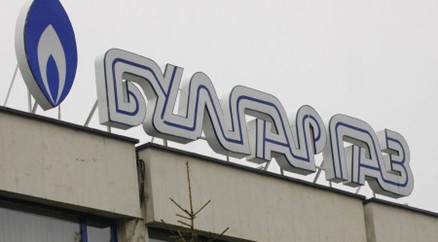OPINIONS
Date: 10 November 2022 Author: Benedek Sipocz, supervisor: Kacper Gatlik
Implications of Bulgaria Negotiating with Gazprom for Resuming Gas Imports
Bulgaria’s new interim Minister of Energy Rosen Hristov announced on the 22nd of August 2022 that the country will negotiate with Gazprom to restart the import of natural gas. The announcement comes after the government of Prime Minister Kiril Petkov fell at the end of June, and a new interim government has been appointed until the general election in October 2022. The announcement also follows the halting of gas deliveries to Bulgaria from the Russian Federation in April 2022 after the country refused to pay for the import in rubles. The move is seen as a reversal of the policies of the previous government, which sought to diversify gas deliveries by negotiating deals with Azerbaijan and the United States.

The goal of the new negotiations with Gazprom
Not long after taking office, the interim caretaker government has rethought Bulgaria’s energy policy. The reorientation of the energy policy consisted of revising deals negotiated during the previous administration, as well as reviewing the state of the energy sector as a whole within Bulgaria. During such reviews, the state of gas deliveries was described as critical by Rosen Hristov, arguing current gas supplies would only last until September. The energy minister later added that after securing a slot for the delivery of LNG gas via tankers, the gas supply for October is secure.
The previous administration of Petkov negotiated an agreement for the delivery of seven LNG tanker shipments with the American company Chenerie.[1] The deal brokered by Petkov’s government would only be finalised if the new interim government confirms the project by August 19, 2022. The caretaker government led by Prime Minister Gulub Donev has requested a delay of two weeks to finalise the deal. Hristov explained the delay is needed for Bulgaria to negotiate and secure slots at the Revithoussa LNG terminal in Greece. Having negotiated a slot at the terminal, the first shipment will arrive in October 2022. Hristov also added Bulgaria will only accept one of the offered seven LNG shipments, as securing slots in Greece (or Turkey) would be expensive, thus raising the price as well for consumers.
Donev’s government also announced the reviewing of the performance of the newly-built Bulgaria-Greece gas interconnector pipeline. The communication of the two successive governments is contradictory to each other. Whilst Donev’s government argues the pipeline is nowhere close to being finished citing technical and administrative difficulties, Petkov’s administration was claiming the pipeline was nearly finalised. The previous prime minister also blames the caretaker government for intentionally delaying the pipeline of becoming fully online. The pipeline was built as a way to diversify gas imports, for example through gas deliveries from Azerbaijan or LNG shipments. The total capacity of the pipeline would be enough to satisfy all of Bulgaria’s natural gas needs.
The aforementioned means the gas supply of Bulgaria is not secured from November onwards. It is, therefore, because of such reasons that Hristov called the need for negotiation with Gazprom inevitable, arguing the demand of the industry and households has to be met. The goal of negotiations, therefore, will be to restart the imports of Russian gas.
What are the implications of the announcement?
The announcement to negotiate the resumption of Russian gas signals an overhaul of the energy policy of the previous government. Successful negotiations, therefore, would not only mean the goal of ending dependence on Russian gas be overturned, but also increasing Russian influence in Bulgaria. The latter would also mean the traditionally friendlier stance towards Russia be resumed.
What remains to be seen are the specifics of the deal, and whether it can be concluded before the general election on October 2nd, 2022. Specifics such as quantity, price, and length of commitment. The general election will also be an important moment as well to evaluate the work of the Donev administration, and the state of relations with Russia given the government’s efforts to normalise relations.
[1] https://seenews.com/news/bulgaria-seeks-2-week-delay-to-signing-lng-deal-with-us-supplier-report-794482
Support Us
If content prepared by Warsaw Institute team is useful for you, please support our actions. Donations from private persons are necessary for the continuation of our mission.
All texts published by the Warsaw Institute Foundation may be disseminated on the condition that their origin is credited. Images may not be used without permission.















